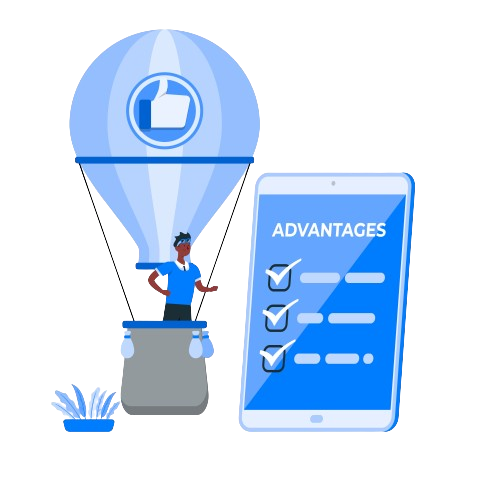
In business, leveraging customer engagement data has become a cornerstone for success. Making informed decisions based on this wealth of information obtained from data analytics can propel your business toward profitability and sustained growth. However, the key lies not only in collecting data but in strategically utilizing it to your advantage.
Your data’s ultimate sanctuary is a robust CRM system. It serves as the bedrock for housing and managing the valuable insights gathered from customer interactions. Yet, having a CRM in place is merely the initiation of a more intricate process that holds the potential to unlock the full impact of your data.
True empowerment emerges when your CRM system seamlessly aligns with your entire MarTech (Marketing Technology) stack. This synchronization is the cornerstone for achieving a “single view of the truth” — a comprehensive understanding that empowers you to make well-informed business decisions. Join us on a journey as we explore how smart analytics strategies can be the catalyst for maximizing the impact of your CRM approach, creating a powerful synergy that goes beyond mere data storage.
What is Data Analytics in CRM?

Data Analytics in CRM is a strategic approach that involves the systematic analysis of customer-related data to derive valuable insights, patterns, and trends. This process enables businesses to make informed decisions, enhance customer engagement, and optimize overall performance.
At its core, data analytics in CRM involves the examination of various types of data, including customer interactions, preferences, purchase history, and feedback. By leveraging advanced analytical tools and techniques, businesses can extract meaningful information from this data, transforming it into actionable insights.
Here are the key components of what data analytics in CRM entails:
- Data Collection: Gathering relevant customer data from multiple touchpoints such as social media, emails, websites, and customer service interactions. Ensuring the accuracy and completeness of the data collected to provide a comprehensive view of each customer.
- Data Storage and Management: Utilizing a robust CRM system to store and organize the collected data efficiently. Implementing data management practices to maintain data integrity, security, and accessibility.
- Data Processing: Applying data processing techniques to clean, filter, and preprocess raw data for analysis. Transforming data into a format suitable for advanced analytics, such as predictive modeling or machine learning algorithms.
- Analysis and Interpretation: Employing statistical methods and data visualization tools to identify patterns, correlations, and trends within the customer data. Interpreting the analyzed data to gain a deeper understanding of customer behavior, preferences, and needs.
- Predictive Analytics: Using predictive modeling to forecast future customer behavior and trends. Anticipating customer needs and preferences, enabling proactive decision-making and personalized customer interactions.
- Segmentation and Targeting: Segmenting customers based on common characteristics or behaviors identified through analytics. Tailoring marketing strategies and campaigns to specific customer segments for more effective targeting.
- Performance Measurement: Evaluating the effectiveness of CRM strategies and initiatives through key performance indicators (KPIs). Continuously monitoring and adjusting CRM activities based on analytical insights to optimize outcomes.
With data analytics in CRM, businesses can move beyond traditional methods and gain a deeper understanding of their customers. This knowledge empowers organizations to cultivate stronger relationships, enhance customer satisfaction, and drive sustainable business growth.
Why should you harness the power of data analytics in your CRM approach?

Let’s find out some compelling insights to shed light on the transformative impact this synergy can have on your business, drawing on relevant references.
- Informed Decision-Making: Utilizing data analytics in your CRM strategy empowers your team to make more informed decisions. By analyzing customer interactions, preferences, and behavior patterns, you gain actionable insights into what works and what doesn’t. This informed decision-making process is crucial for adapting strategies that resonate with your target audience. According to a study by Forbes, organizations that leverage data analytics in their decision-making process are more likely to experience a significant increase in productivity and profitability.
- Personalized Customer Experiences: Data analytics enables a deeper understanding of individual customer preferences, allowing for the creation of personalized experiences. By tailoring your approach based on customer data, you can enhance customer satisfaction and loyalty. Salesforce reports that 84% of customers say being treated like a person, not a number, is crucial to winning their business. Data analytics facilitates this personalized approach, ensuring that your CRM strategy is not just a tool but a vehicle for building lasting relationships.
- Anticipating Customer Needs: One of the remarkable advantages of incorporating data analytics into your CRM strategy is the ability to anticipate and proactively address customer needs. By analyzing historical data, you can identify trends and predict future behaviors. This foresight allows you to stay ahead of the competition and align your offerings with evolving customer expectations. According to a McKinsey report, companies that leverage customer behavioral insights outperform peers by 85% in sales growth and more than 25% in gross margin.
- Efficient Resource Allocation: Data analytics can optimize your resource allocation by highlighting areas of high impact. By understanding which marketing channels, products, or campaigns yield the best results, you can allocate resources more efficiently. This not only maximizes your return on investment but also streamlines operations. A Harvard Business Review study found that companies in the top third of their industry in the use of data-driven decision-making were, on average, 5% more productive and 6% more profitable than their competitors.
The integration of data analytics into your CRM strategy is not just a technological evolution but a strategic importance for businesses looking to thrive. It’s about transforming raw data into actionable insights that fuel informed decisions and a proactive approach to meet evolving needs.
Tracking Business Trends Using Data Analytics

Fortunately, in this age of information, businesses have an invaluable asset at their disposal: data. Harnessing the power of data analytics to track and analyze business trends has emerged as a fundamental strategy for organizations striving to remain competitive and agile.
- Understanding the Pulse of Your Business: Data analytics provides a comprehensive lens through which you can observe the heartbeat of your business. By tracking key performance indicators (KPIs), customer behaviors, and market fluctuations, you gain insights into the current health and trajectory of your enterprise. This understanding is foundational for making informed decisions that align with the ever-shifting landscape of your industry.
- Unveiling Patterns and Anomalies: One of the core strengths of data analytics lies in its ability to uncover patterns and anomalies within vast datasets. Whether it’s identifying emerging consumer preferences, market shifts, or internal operational patterns, analytics tools can sift through the data noise to reveal trends that might otherwise go unnoticed. This not only facilitates proactive decision-making but also enables businesses to capitalize on emerging opportunities.
- Strategic Decision-Making: Armed with a wealth of historical and real-time data, businesses can make strategic decisions grounded in empirical evidence. Data analytics allows you to move beyond gut instincts and intuition, providing a solid foundation for decisions that impact your bottom line. Whether it’s adjusting product offerings, optimizing marketing strategies, or refining operational processes, the ability to track business trends empowers organizations to make decisions that are not only timely but also backed by data-driven insights.
- Adapting to Market Dynamics: Markets are in a constant state of flux, and the ability to adapt swiftly is a competitive advantage. Data analytics equips businesses with the agility to respond to changing market dynamics. By monitoring trends, businesses can pivot strategies, refine their value proposition, and align offerings with evolving customer expectations. This adaptability is crucial for maintaining relevance and sustaining growth in a dynamic business environment.
- Enhancing Customer Experiences: Understanding and anticipating customer preferences is central to delivering exceptional experiences. Data analytics enables businesses to track customer behaviors, preferences, and feedback, creating a holistic view of customer interactions. This insight allows for the personalization of products, services, and communication strategies, fostering stronger customer relationships and loyalty.
Thus, utilizing data analytics to track business trends is not merely a technological advancement; it’s strategically significant. It empowers businesses to navigate complexities, identify opportunities, and make decisions that are not just informed but forward-thinking. As we delve deeper into data analytics, we uncover a powerful tool that not only tracks trends but propels businesses toward a future defined by innovation and resilience.
The Benefits of Using Data Analytics in Your CRM Strategy

Incorporating data analytics into your CRM strategy is not merely an option; it can redefine the way you understand, engage with, and cater to your customer base. Let’s explore the multifaceted benefits that arise from integrating data analytics into your CRM approach:
- Enhanced Customer Understanding: Data analytics allows you to go beyond surface-level interactions and truly understand your customers. By analyzing their behaviors, preferences, and historical interactions, you gain deep insights into what drives their decisions. This nuanced understanding is invaluable for tailoring your products, services, and marketing efforts to meet their evolving needs.
- Sales Optimization: Data analytics in CRM is a game-changer for sales teams. It provides a comprehensive view of customer interactions, helping sales representatives understand customer needs, preferences, and buying patterns. By leveraging this insight, sales teams can prioritize leads, tailor their approach, and ultimately increase conversion rates. Predictive analytics can also assist in forecasting sales trends, enabling proactive strategies for revenue growth.
- Marketing Precision: The marriage of data analytics and CRM is a boon for marketing professionals. Analyzing customer data allows marketers to create highly targeted and personalized campaigns. From segmenting audiences based on demographics and behaviors to measuring campaign effectiveness in real-time, marketing teams can optimize their strategies for maximum impact. This precision ensures that marketing efforts are not only cost-effective but also resonate with the intended audience.
- Email Marketing Excellence: Email marketing becomes a strategic powerhouse when fueled by data analytics. By analyzing customer behavior, preferences, and response patterns, you can tailor email campaigns with precision. This includes personalized content, optimized send times, and targeted promotions. The result is higher open rates, click-through rates, and, most importantly, increased engagement and conversions.
- Omnichannel Communication Synergy: In an era where customers engage with brands across multiple channels, delivering a seamless and cohesive experience is paramount. Data analytics enables the integration of various communication channels within the CRM framework, ensuring that customer interactions are consistent and interconnected. Whether it’s social media, in-app messaging, or traditional channels, an omnichannel approach enhances customer satisfaction and loyalty.
- User Segmentation Strategies: User segmentation is a cornerstone of effective CRM software and data analytics refines this process. By categorizing customers based on demographics, behavior, and preferences, you can tailor communication and offerings to specific segments. This targeted approach ensures that each customer receives relevant and meaningful interactions, fostering a sense of personalization that resonates with diverse audience groups.
- Personalized Customer Experiences: Armed with insights from data analytics, you can create highly personalized customer experiences. By anticipating needs and proactively addressing pain points, you foster stronger connections with your clientele. This level of personalization not only enhances customer satisfaction but also increases loyalty and retention rates.
- Optimized Marketing Campaigns: Data analytics empowers you to fine-tune your marketing efforts with precision. By analyzing customer data, you can identify the most effective channels, messaging, and timing for your campaigns. This ensures that your marketing resources are allocated efficiently, resulting in a higher return on investment (ROI).
- Improved Decision-Making: Informed decision-making is the backbone of any successful business. Data analytics provides real-time and predictive insights that enable you to make strategic decisions with confidence. Whether it’s identifying market trends, forecasting sales, or refining product offerings, data-driven decision-making is a game-changer.
- Efficient Resource Allocation: Understanding customer preferences and behavior patterns helps optimize resource allocation. From sales efforts to customer support, data analytics ensures that resources are directed where they can have the most significant impact. This efficiency not only streamlines operations but also contributes to cost savings.
- Proactive Issue Resolution: Data analytics enables you to identify potential issues or challenges before they escalate. By monitoring customer feedback and engagement data, you can proactively address concerns, improving overall customer satisfaction and preventing potential churn.
- Scalability and Adaptability: As your business grows and evolves, so do customer dynamics. Data analytics provides scalability by offering insights into changing customer behaviors and market trends. This adaptability ensures that your CRM strategy remains relevant and effective in the face of evolving business landscapes.
The synergy between data analytics and CRM transforms sales, marketing, and communication strategies into finely tuned instruments. Whether it’s closing deals, crafting personalized marketing campaigns, or orchestrating seamless omnichannel experiences, data analytics in CRM is the catalyst for excellence across various facets of business operations.
Identification of Market Gaps Using Data Analytics

The identification of market gaps is crucial for staying ahead of the competition and meeting customer needs effectively. Data analytics plays a pivotal role in this process, offering a sophisticated and insightful lens through which businesses can scrutinize market trends and consumer behavior.
- Unveiling Untapped Opportunities: Data analytics allows businesses to sift through vast volumes of information to uncover patterns, trends, and anomalies in the market. By examining consumer preferences, purchasing behavior, and emerging trends, businesses can identify areas where demand outstrips supply or where current offerings fall short of meeting customer expectations. These insights provide a roadmap for businesses to pinpoint specific market gaps that represent untapped opportunities.
- Precision in Consumer Understanding: The power of data analytics lies in its ability to provide a granular understanding of consumer behavior. By analyzing customer interactions, feedback, and transactional data, businesses can gain deep insights into what customers truly value and what aspects of a product or service may be lacking. This precision in understanding customer needs enables businesses to fine-tune their offerings and address specific gaps in the market with tailored solutions.
- Real-Time Adaptation: One of the significant advantages of employing data analytics for market gap identification is the ability to do so in real-time. Traditional market research methods often involve time-consuming surveys and studies, whereas data analytics allows businesses to track market dynamics on an ongoing basis. This real-time adaptation ensures that businesses can respond swiftly to changing consumer preferences, emerging trends, and competitive landscape shifts.
- Competitive Edge through Data-Driven Decision-Making: In a landscape where innovation and responsiveness are paramount, businesses leveraging data analytics gain a substantial competitive edge. By making data-driven decisions, businesses can proactively identify market gaps before they become apparent to competitors. This foresight enables them to introduce innovative products or services, enhancing their market position and solidifying their relevance in the eyes of consumers.
- Closing the Loop: Identifying market gaps is only the first step; closing them requires strategic implementation. Data analytics not only helps in recognizing opportunities but also guides businesses in formulating targeted strategies for product development, marketing, and customer engagement. Whether it’s launching a new product variant, refining marketing campaigns, or enhancing customer support, data analytics provides the insights needed to execute effective strategies.
By leveraging the wealth of data at their disposal, businesses can not only stay attuned to market gaps but also position themselves as agile, customer-centric entities ready to meet evolving needs with precision and efficiency.
End Goal Identification: Wrapping up!
For businesses fortunate enough to have access to comprehensive historical data, end-goal identification becomes considerably more manageable. However, for those still in the process of accumulating this valuable resource, the journey towards defining end goals involves a strategic and patient approach.
- Setting the stage for successful end goal identification begins with the quality of your data. Access to accurate, timely, and relevant information is pivotal in making informed decisions. Businesses armed with good data can more confidently outline their marketing objectives, understanding the nuances of customer behavior, market trends, and past performance.
- Not all businesses have immediate access to a treasure trove of historical data. For these enterprises, the path to identifying end goals becomes a more extended and deliberate process. The key lies in playing the long game, acknowledging that building a robust foundation for future objectives will require time, persistence, and a willingness to learn from each step.
- In the absence of a rich history of data, the journey toward end goal identification often involves a series of experiments and analyses. Embracing a trial-and-error approach becomes crucial, as businesses carefully test various strategies while diligently monitoring analytics. This iterative process allows for a deeper understanding of what resonates with the audience and what requires optimization.
- The ultimate goal during this phase is to construct a solid base of data and insights. Each trial adds a layer of understanding, refining the approach and contributing to a more comprehensive view of what works for your unique business landscape. The iterative nature of this process ensures that end goals are not just set arbitrarily but are rooted in a nuanced understanding of your audience and market dynamics.
The journey towards end goal identification is not merely a destination but a continuous evolution. With each iteration, businesses move closer to establishing a solid foundation that not only informs their marketing objectives but also positions them strategically for future growth and success. So, keep using your CRM analytics data wisely and precisely.